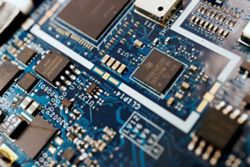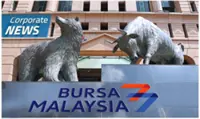
The UAW blamed the latest walkout by 6,800 workers at the Michigan plant on Stellantis having the “worst proposal” on the table on wage increases, temporary-worker pay and conversion to full-time status, as well as cost-of-living adjustments. — Reuters
DETROIT: The United Auto Workers (UAW) union went on strike at Chrysler-parent Stellantis’ largest assembly plant on Monday, hitting the automaker’s profitable RAM 1500 pickup truck production in a major expansion of the more than month-old strike.
The UAW, which is striking against the three big Detroit automakers, blamed the latest walkout by 6,800 workers at the Michigan plant on Stellantis having the “worst proposal” on the table on wage increases, temporary-worker pay and conversion to full-time status as well as cost-of-living adjustments.
More than 40,000 union members working at Ford, General Motors and Stellantis are now on strike since the walkouts began on Sept 15 – about 27% of the Detroit Three automakers’ total workforce – part of an unusual campaign of simultaneous strikes.
Stellantis officials could not immediately be reached for comment.
The union has demanded a 40% wage hike, including a 20% immediate increase, improvements in benefits, as well as covering EV battery plant workers under union agreements.
The UAW’s move against Sterling Heights is similar to its recent walkout from Ford’s Kentucky Truck assembly plant, its most profitable single operation globally.
“Expanding it to the pickup trucks is really at the heart of what these companies produce,” said Tim Ghriskey, a senior investment strategist at Ingalls & Snyder, which has owned auto stocks in the past.
“Labour is asking for so much. It’s really hard for the automakers to roll over to all of it and if they do roll over, it will punish the stock. It’s a very sticky situation.”
Wells Fargo analyst Colin Langan estimated that production losses at the truck plant will cost Stellantis US$110mil in operating earnings per week, doubling the automaker’s overall hit from the strikes to about US$200mil a week.
The plant accounted for about 16% of North American production for Stellantis and is proportional to the strike against Ford’s Kentucky plant in terms of production, said Marick Masters, professor of business at Wayne State University.
The UAW and the automakers are also bargaining over future wages and unionisation policies for electric vehicle battery plants planned by joint ventures of the automakers and their South Korean battery partners.
Those talks are complicated, because the ventures are separate companies and the automakers do not have to cover them under their master UAW contracts under US labour law.
UAW president Shawn Fain met workers at the plant as they left, shaking hands and handing out picket signs, according to a union post on X, the social media site formerly known as Twitter. — Reuters









































